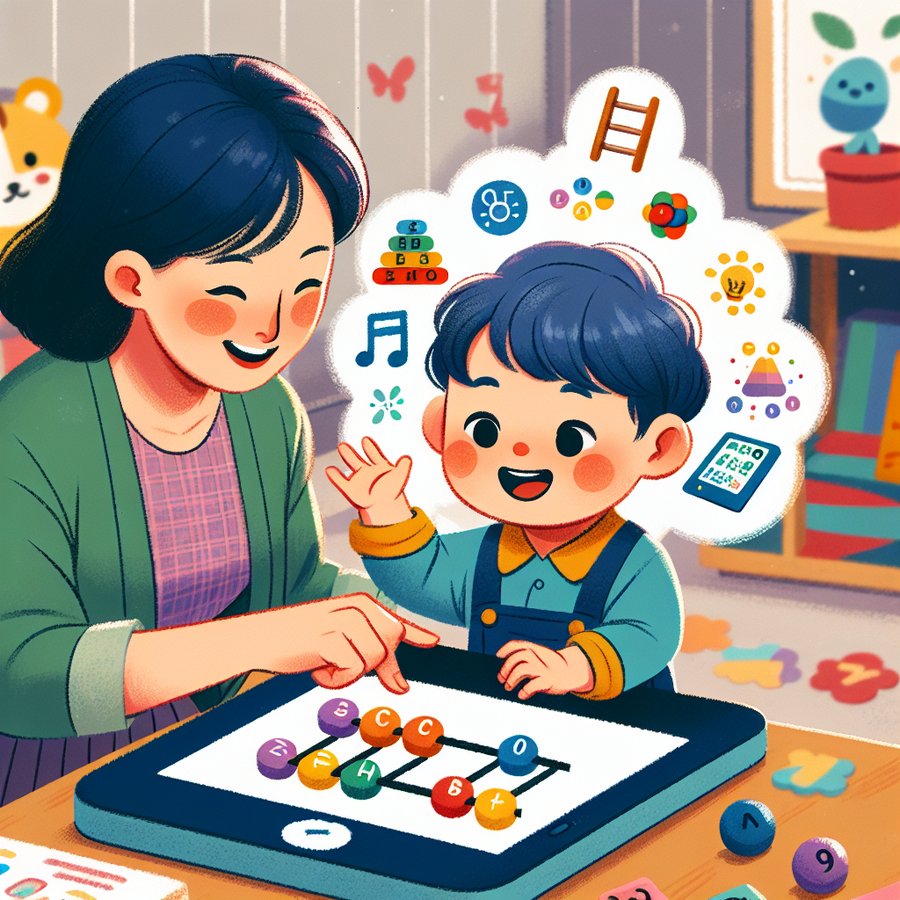This ultimate guide to choosing educational apps for toddlers is designed to help parents navigate the vast digital landscape to find meaningful, engaging, and developmentally appropriate learning tools for their little ones. With the right educational apps, toddlers can explore a world of colors, shapes, numbers, and letters, while developing critical thinking and problem-solving skills. However, selecting the best apps among thousands can seem daunting. This guide aims to simplify that process, ensuring your toddler benefits from high-quality digital learning experiences.
Understanding the Importance of Educational Apps for Toddlers
Educational apps, when used appropriately, can be a powerful tool in a toddler’s development. These apps offer an interactive learning experience that can complement traditional learning methods, providing a unique way for children to engage with educational content. According to research, educational apps can enhance language skills, problem-solving abilities, and even fine motor skills. It’s crucial to understand that not all apps are created equal, and the key to harnessing the potential of these digital tools lies in choosing apps that are specifically designed with toddlers’ developmental needs in mind.
Parents should look for apps that are not only fun and engaging but also offer a balanced mix of educational content. This means finding apps that cater to different areas of development, such as cognitive skills, language acquisition, and emotional development. For instance, apps that encourage toddlers to interact with the content through touch, voice, or movement can significantly enhance their learning experience. Furthermore, it’s essential to select apps that are age-appropriate, avoiding those that are too complex or too simplistic for your child’s current developmental stage.
Guide to Choosing Educational Apps for Toddlers
When it comes to choosing the right educational apps for your toddler, there are several factors to consider. First and foremost, look for apps that are specifically designed for toddlers. These apps should have a simple, intuitive interface that allows young children to navigate the app with minimal assistance. The content should be engaging, with bright colors, fun animations, and interactive elements that capture your child’s attention. Moreover, the educational content should be age-appropriate, challenging enough to keep your toddler engaged but not so difficult that it leads to frustration.
Another important factor is the educational value of the app. Choose apps that cover a range of developmental areas, including language and literacy, math and logic, creative expression, and social and emotional skills. Look for apps that offer a balanced approach to learning, combining free play with structured activities. Additionally, consider apps that provide feedback to your child, such as verbal praise or visual rewards, which can help boost their confidence and motivation to learn. Don’t forget to check reviews and ratings from other parents and educators, as these can provide valuable insights into the app’s effectiveness and suitability for your child.
Top Picks: Educational Apps for Toddlers
Selecting the perfect educational app for your toddler can be a breeze with the right information. Here are some top picks that have been recognized for their quality, educational value, and appeal to young learners:
- ABCmouse.com: This comprehensive early learning app covers a wide range of subjects, including reading, math, science, and art. It’s designed to be engaging and interactive, making learning fun for toddlers. (Visit ABCmouse.com)
- Endless Alphabet: With its playful approach to learning the alphabet and building vocabulary, Endless Alphabet is a hit among toddlers and parents alike.
- Peekaboo Barn: Ideal for younger toddlers, this app introduces children to various animals and their sounds, promoting language development and animal recognition.
When choosing educational apps for toddlers, it’s also essential to consider how the app fits into your child’s overall screen time. According to the American Academy of Pediatrics, screen time for children aged 2 to 5 should be limited to one hour per day, and it should be high-quality programming that is viewed together with an adult. This encourages interaction and discussion, which can enhance the learning experience.
In conclusion, choosing the right educational apps for toddlers involves a mix of understanding your child’s developmental needs, selecting apps with high educational value, and balancing screen time with other forms of learning and play. By taking these factors into consideration, parents can provide their toddlers with a rich digital learning experience that complements their overall development.













